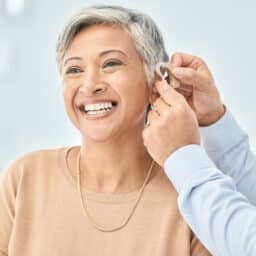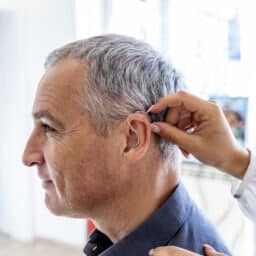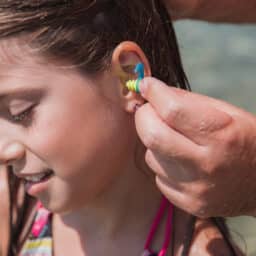Winter Fun With Hearing Aids: Tips for Icy and Snowy Sports

With the winter season rolling in, cozy outings and snowy vacations are on the horizon. Whether it’s a spin on the ice, a ski trip or a short-lived snowball fight, the season offers plenty of fun activities. But if you’re among the 7.1% of adults aged 45 and over who wear a hearing aid, you…
Spotting the Signs of Hearing Loss in Your Teen: A Parent’s Guide

As parents, it can feel hard to give your children the tools they need to thrive in every area of life. During their teen years, that includes more than just academics and friendships—it also means looking out for their hearing health. How Common Is Teen Hearing Loss? Approximately two or three per 1,000 children in…
Understanding Elderspeak and How To Avoid It With Respectful Communication

Hearing loss or cognitive changes can make everyday conversations more challenging for many older adults. Unfortunately, these challenges often lead others to adopt a condescending communication style known as “elderspeak.” While usually well-intentioned, elderspeak can be demeaning and harmful, affecting the confidence and well-being of older adults with hearing loss. How To Identify Elderspeak Elderspeak…
What to Know About Hearing Aids and Virtual Meetings

In today’s remote work age, virtual meetings have become a staple in both professional and personal settings. However, for the 38.8 million Americans who could benefit from hearing aids, these meetings can present unique challenges. With the right strategies, you can navigate virtual meetings successfully and ensure clear communication. Here are some effective tactics to…
Is It Time To Update Your Hearing Aids

Hearing aids are crucial for enhancing the quality of life for those with hearing loss, with nearly 28.8 million Americans who could benefit from them. However, like any technology, hearing aids can become outdated or less effective over time. If you’ve been using your hearing aids for a few years, you might be wondering if…
What to Expect During the Hearing Aid Adjustment Period

Hearing aids are valuable devices for enhancing hearing and improving quality of life. However, it’s crucial to acknowledge the adjustment period they entail, requiring patience and understanding. For the 28.8 million people who could benefit from hearing aids, knowing what lies ahead during this phase can alleviate concerns and facilitate a smoother transition. Understanding the…
How Can Hearing Aids Restore Your Confidence

Hearing loss affects millions of individuals, with nearly 28.8 million Americans potentially benefitting from using hearing aids. Not only do hearing aids amplify sound, allowing for social connections to be maintained, but they also offer a boost in confidence for users. The challenge of not being able to hear properly can often result in feelings…
How to Make Friends When You Have Hearing Loss

Fostering social connections is crucial for mental health across all life stages, and this can become increasingly challenging with age. Compounding this challenge is age-related hearing loss, which affects 10% of adults between 55 and 64 years old, and 22% of individuals between 65 and 74 years old. Acknowledging the impact of hearing loss on…
How to Know If You’re a Good Candidate For Hearing Aids

In the U.S., 28.8 million people stand to benefit from the use of hearing aids. Yet, on average, individuals wait more than five years to seek help after first noticing hearing difficulties. This reluctance to adopt hearing aids is often rooted in stigma and denial. However, when confronted with the reality of age-related hearing deterioration…
How to Incorporate Hearing Protection into Your Daily Life

It’s a new year, and you may be looking for ways to improve your overall health and well-being. While it might seem like a small aspect of your health, resolving to protect your hearing can have a more significant impact than you initially thought. Untreated hearing loss not only adversely affects your ability to communicate…
